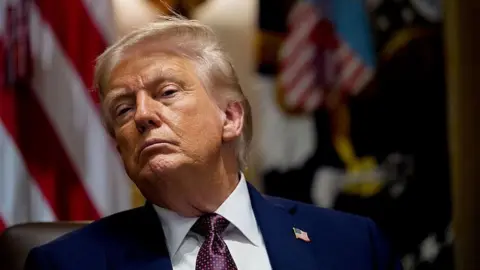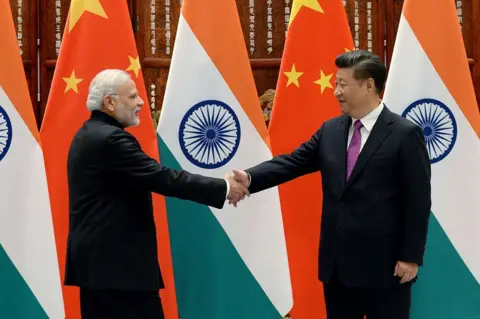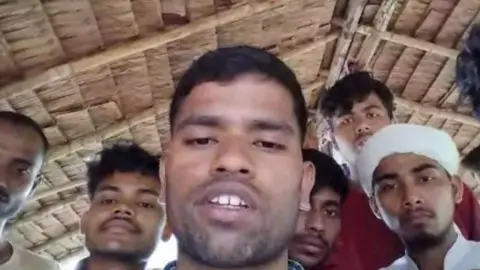The Dalai Lama is celebrating his 90th birthday this week in Dharamshala, India, drawing hundreds of followers who are eagerly awaiting potential revelations regarding his succession plan. The spiritual leader, a prominent figure in Tibetan Buddhism, is expected to release a video message on Wednesday, though specifics remain unclear. Having fled to India in 1959 after a failed revolt against Chinese authority in Tibet, he established a government-in-exile that opposes Beijing’s control over Tibet.
As part of these celebrations, which began on Monday according to the Tibetan lunar calendar, a three-day Tibetan Religious Conference will commence. It is expected that over 7,000 attendees, including Indian ministers and notable figures like actor Richard Gere, will participate. During a gathering on Monday, the Dalai Lama mentioned a framework for discussing the "continuation of the institution of the Dalai Lamas," although he didn't provide detailed information.
Discussion surrounding the institution's future has intensified, especially as the Dalai Lama has made statements over the years about the possibility of a female successor or even none at all, should community support falter. Recently, he indicated that if there is backing from Tibetan exiles, the succession will continue and his office would play a role in identifying his successor. Importantly, he has made it clear that this successor must be born outside of China, provoking dissent from the Chinese government.
The current Dalai Lama acts as a central figure for the Tibetan movement, and many followers are anxious for information regarding his reincarnation. According to Youdon Aukatsang, a member of the Tibetan parliament-in-exile, there’s a fear that failing to identify a successor soon could impact the Tibetan community’s future and identity. He emphasized that the Dalai Lama represents both spiritual guidance and Tibetan cultural identity.
Experts warn that if a successor is named, China is poised to declare its own candidate as the Dalai Lama, exploiting its authority alongside resources. Dibyesh Anand, an international relations expert, stated that China may claim privilege in choosing the next Dalai Lama, although this is expected to be widely rejected by Tibetans and global observers alike. Aukatsang affirmed that no recognition would be afforded to a Dalai Lama appointed by Beijing.
The Dalai Lama’s teachings on reincarnation elaborate that senior monks are reborn, with a new Dalai Lama being selected based on their being perceived to embody the spiritual essence of their predecessors. The current Dalai Lama was identified at just two years old as the reincarnation of the 13 previous leaders after accurately recognizing items belonging to his former incarnation.
Now separated from his homeland since the 1959 uprising against Chinese rule, many Tibetan exiles continue to cherish their cultural roots. Lobsang Choedon, 84, who attended the recent festivities, holds faith that their community will one day return to Tibet, a sentiment echoed by her younger relatives who maintain a strong connection to their ancestry despite being raised in India.
As part of these celebrations, which began on Monday according to the Tibetan lunar calendar, a three-day Tibetan Religious Conference will commence. It is expected that over 7,000 attendees, including Indian ministers and notable figures like actor Richard Gere, will participate. During a gathering on Monday, the Dalai Lama mentioned a framework for discussing the "continuation of the institution of the Dalai Lamas," although he didn't provide detailed information.
Discussion surrounding the institution's future has intensified, especially as the Dalai Lama has made statements over the years about the possibility of a female successor or even none at all, should community support falter. Recently, he indicated that if there is backing from Tibetan exiles, the succession will continue and his office would play a role in identifying his successor. Importantly, he has made it clear that this successor must be born outside of China, provoking dissent from the Chinese government.
The current Dalai Lama acts as a central figure for the Tibetan movement, and many followers are anxious for information regarding his reincarnation. According to Youdon Aukatsang, a member of the Tibetan parliament-in-exile, there’s a fear that failing to identify a successor soon could impact the Tibetan community’s future and identity. He emphasized that the Dalai Lama represents both spiritual guidance and Tibetan cultural identity.
Experts warn that if a successor is named, China is poised to declare its own candidate as the Dalai Lama, exploiting its authority alongside resources. Dibyesh Anand, an international relations expert, stated that China may claim privilege in choosing the next Dalai Lama, although this is expected to be widely rejected by Tibetans and global observers alike. Aukatsang affirmed that no recognition would be afforded to a Dalai Lama appointed by Beijing.
The Dalai Lama’s teachings on reincarnation elaborate that senior monks are reborn, with a new Dalai Lama being selected based on their being perceived to embody the spiritual essence of their predecessors. The current Dalai Lama was identified at just two years old as the reincarnation of the 13 previous leaders after accurately recognizing items belonging to his former incarnation.
Now separated from his homeland since the 1959 uprising against Chinese rule, many Tibetan exiles continue to cherish their cultural roots. Lobsang Choedon, 84, who attended the recent festivities, holds faith that their community will one day return to Tibet, a sentiment echoed by her younger relatives who maintain a strong connection to their ancestry despite being raised in India.






















